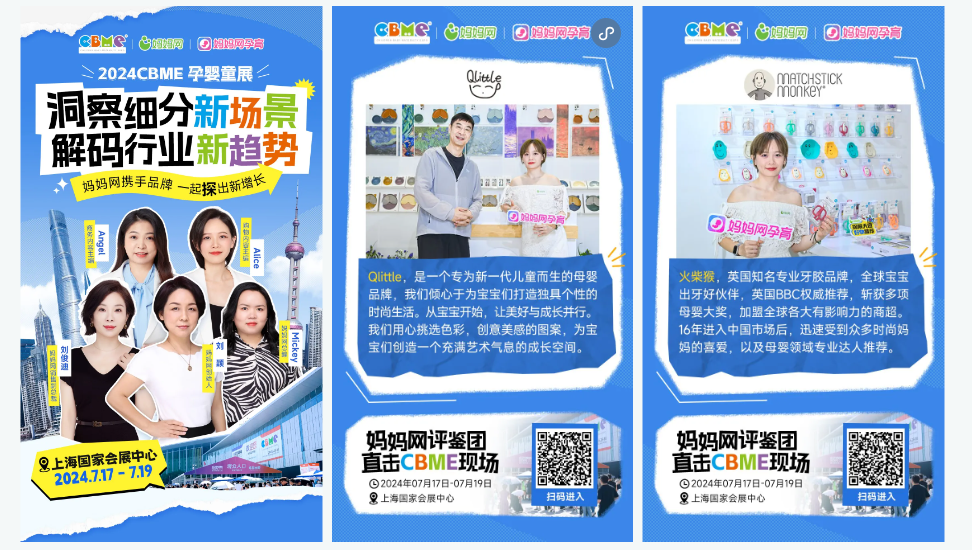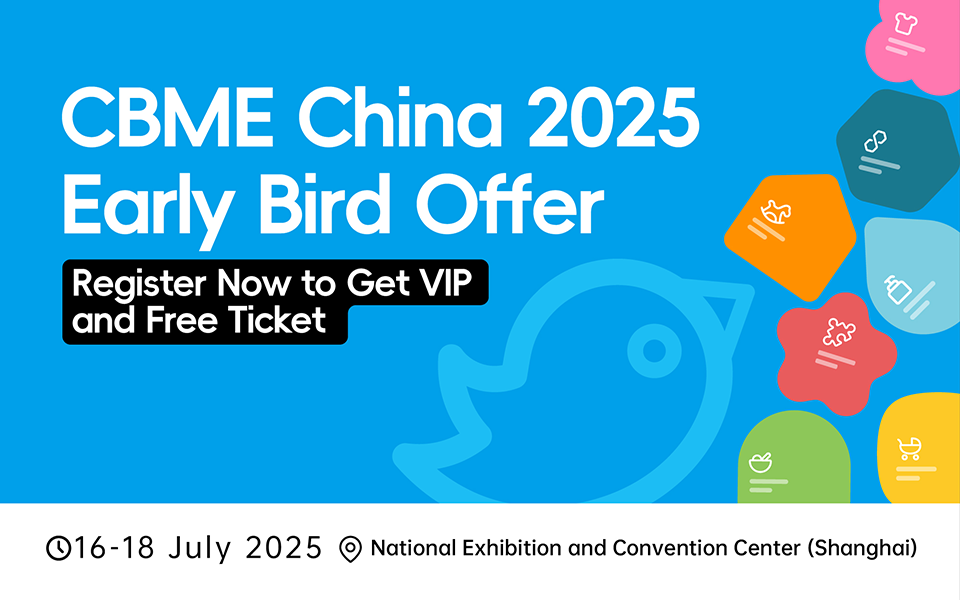The size of the baby care industry in China growing with a high speed, with its compound annual growth rate expected to reach 14.5% by 2023, according to Mintel China. Considering China’s recent easing of the One Child Policy in 2016, accompanied by the growing household income of Chinese families, the baby care market has seen consistent growth through both online and offline distribution channels. While foreign brands are still favored, especially when considering baby milk formula, domestic competition in China’s baby care market has tightened in the recent years, including sales of other child care related products such as strollers, bottles, baby seats, cribs, and baby clothing. Although offline channels such as supermarkets and dedicated baby care stores are still the main distributors, the growing online presence of the industry both in e-commerce and social media seems to point to a promising future for the baby care market in China.
E-commerce enables more foreign baby care product purchases
Purchases of baby care products through e-commerce are a big source of growth for its market in China. Cross-border baby care related sales online are some of the most popular for Chinese consumers, in addition to beauty and food products. Consumer reports record a higher frequency in the usage of baby products, especially those relating to baby personal care, such as body powder, lotions and creams, baby insect repellent, and shower gels. The preference for baby care is still imported products, and the huge e-commerce platform in China enables consumers to purchase foreign brands through cross-border e-commerce.
Half of the baby-related products are being purchased through e-commerce
Online channels now represent 50% of mother and baby retail market value, increasingly competing with physical stores for consumer attention in the baby care distribution market in China. As of 2017, this half of the market is dominated by Tmall, with 47% of the gross online merchandise volume, followed by JD at 27%. Combined, JD and TMall held 37% of the total online sales of baby-related products.
There is a growing market for baby durables, such as a stroller and baby seats in China. Online sales of strollers have reached 2.6 billion RMB on Taobao/Tmall in 2017. During the same period, China produced 16.41 million safety seats for cars, a 10.97% rise compared to 2016 to meet the increasing demand. In the baby bed, cribs, and basket sectors, the total online sales of baby beds have reached 1.16 billion RMB on Taobao/Tmall in 2017. According to a consumer report study by Mintel, 41% of consumers have purchased baby durables (strollers, car seats, beds) through online websites such as TMall and JD. While the unit price of international brands in the baby safety seat and stroller segment is 2500-4000 RMB, nearly three times the price of domestic brands 800-2000 RMB, foreign international brands are still favored over domestic, with 47% of consumers preferring imported brands for safety reasons.
Over half of consumers report to using general e-commerce websites for baby clothing, followed closely by malls/department stores, specialized mother and baby stores, and supermarkets. Consumer reports of increased frequency in online shopping indicate the growing potential and competition of online markets versus physical offline stores. Among all kinds of baby care products consumption on e-commerce platforms, baby toys sales lead with 55% bought through online sales, diapers at 52%, clothing at 50%, and durable goods at 41%.
Mother and baby dedicated stores dominate the distribution of baby care products, such as lotions, creams, and shampoos, while in general stores such as supermarkets, consumption mainly consists of baby diapers and other toiletries. Yet the online distribution of all products has steadily increased, especially in the sectors of baby toys and clothing, where they are already taking over physical stores as the main channel of distribution.
Therefore, online channels are essential to foreign brands
“For the baby food processors, foreign brands are still better perceived. For 10 to 20% of the customers, the country of origin is a crucial criterion (especially for offline customers). As a result, many brands label themselves as International brands but are manufactured in China.” – Tim Favre, Daxue consulting project leader
About CBME
CBME is an established one-stop trade fair with nearly 20 years' experience of bringing together the movers and shakers in child, baby and maternity industry. Uniting top buyers, manufacturers, distributors, suppliers and sellers together under one roof in Shanghai, China annually. CBME hosts hundreds of quality industrial events, training events, private match making meetings. Awards and industry reports release all year around. As a gateway to key sourcing hubs for child, baby and maternity products and services, CBME now covers the most potential markets in the world and is regarded as a MUST-ATTEND show in the world where the key persons to share knowledge and create business opportunities.









